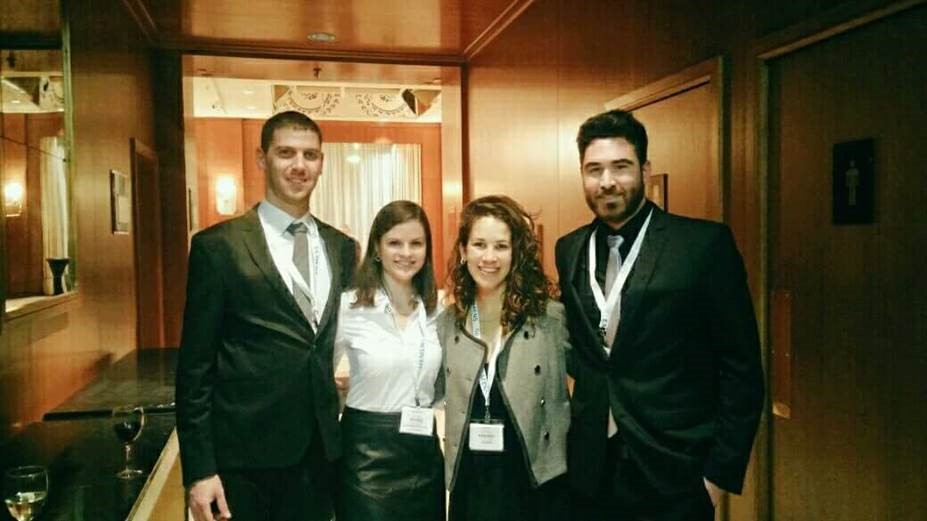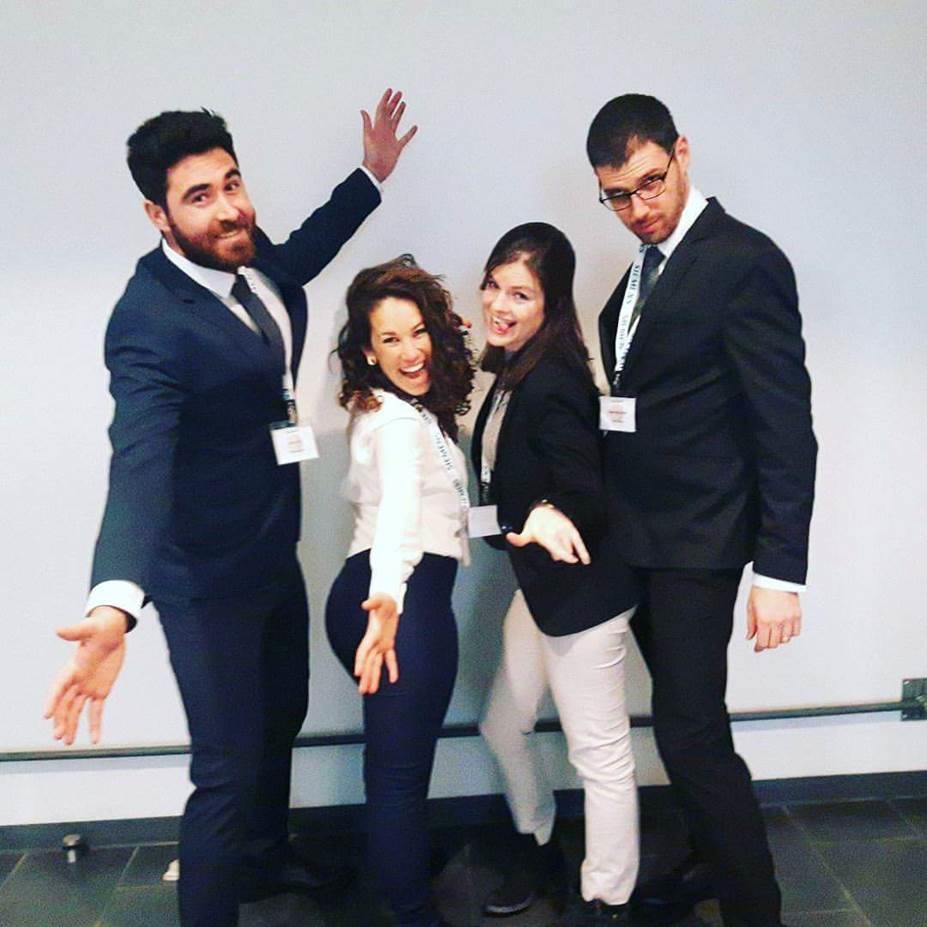
At BGU, a concerted effort is made to engage with the international academic arena. This is realized through collaborative research, joint projects, student exchanges and – as CABGU Quebec supporters are fortunate to know – participation in international events like the John Molson MBA International Case Competition and the Engineering Commerce Case Competition (ECCC) at Concordia.
CABGU Quebec has supported a BGU team at the John Molson event for seven consecutive years, and in 2015 was privileged to enable a group of BGU students and their Coach to join the ECCC. In the 2015 and 2016 competitions BGU’s team derived important benefits from their participation in the ECCC and managed to score very respectably in the middle range.
This year the ECCC welcomed 7 Canadian teams and one each from Egypt, Ireland, Saudi Arabia, the United States, and of course, our Israeli team from BGU. The 2017 BGU team placed second out of 12 teams from around the world. The winner was the University of Limerick.

The competition is structured this way: there are two cases for which the teams have six hours to prepare, followed by fifteen minutes to deliver their presentation to the judges and a short period of Q & A. The third case is more complex, with a prep time of twelve hours followed by presentation the next morning. The teams with the highest overall scores are invited to present their third case again in the finals.
All cases involve business problems that require engineering solutions. BGU’s team featured four outstanding young adults who are pursuing degrees in engineering and/or business and management. Like all the BGU students we have met over the years, they represent a fascinating range of backgrounds, academic interests and extracurricular pursuits – from race cars to debating to developing student entrepreneurship.
The final case at the ECCC was a challenge from Bombardier to develop a plan for ten years from now to assure its profitable position in the transportation marketplace. Our team believed that the answer is in short-and medium-range transportation and proposed the development of a two-seater autonomous drone for personal aviation - the BombarDrone - capable of travelling a distance of approximately 100km. These battery-operated drones will be eco-friendly and sustainable and have a low infrastructure cost. The target market for this plan is China, beginning with Beijing, a huge city with serious transportation challenges, whose growing middle class will be able to afford the cost of this speedy means of mobility. As the marketing plan promises, “The BombarDrone is your own flying carpet”.
CABGU Quebec is delighted to congratulate the 2017 ECCC team - Rotem Duani (leader), Dor Gal, Yossi Myerson and Roni Raviv – and extends warm wishes to Prof. Amir Shapiro, Director of the Robotics Laboratory in the Department of Mechanical Engineering, who initiated BGU’s participation in the event in 2015 and who was unfortunately unable to attend this year. Financial support was provided by the University, the City of Beer-Sheva and CABGU Quebec’s generous donors.

